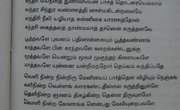In an English proficiency letter, a professor, teacher, mentor, guidance counselor, employer or other credible authority figure attests to an individual’s competency in speaking and writing English. Academic institutions and immigration offices require English proficiency letters of non-native English speaking persons who wish to attend an English-speaking school or immigrate to the United States.
Content
An English proficiency letter contains a clear statement by the writer that certifies the individual in question possesses sufficient English skills. This statement uses language like “I certify that...” or “This letter confirms...” . A description of qualifying evidence follows, such as the dates the person attended English language classes or the number of years he worked in an English-speaking environment. Explaining in detail the types of assignments and tasks the person performed gives the letter recipient an idea of how the letter writer interprets “proficiency.” So, for example, a professor could note that he required students to write all assignments in English, or an employer could explain that his employee served English customers.
Format
Direct English proficiency letters get to the point quickly. They are short and contain only one or two brief paragraphs. They may list a person’s grades, certification or training and then end with encouraging the reader to contact him if he encounters any problems. Contact information is vital as it verifies the writer’s authority, and it belongs at either the bottom or top of the letter. English proficiency letters can take a more creative approach and detail experiences that helped develop an individual’s English skills or demonstrate the person’s proficiency in some other way.
Selecting a Format
Government officials and registrar offices deal with numerous English proficiency letters every day and quickly scan them to find the information they are looking for. In these situations a direct format is appropriate; it may even increase a person’s chance of being considered for enrollment or immigration. Some institutions require additional information in English proficiency letters. For example, when applying to a Ph.D. program, competency in English may not be sufficient; the department may require applicants to be able to write at a postgraduate level.
Tips
Although sample English proficiency letters that simply require filling in the blanks are available online, letter writers should be wary of simply copying a ready-made proficiency letter, as the person receiving the letter may recognize it as such. Some institutions, such as colleges, receive thousands of English proficiency letters as parts of applications for degree programs and may be able to tell if a person has copied a letter off the Internet. Original English proficiency letters suggest that if the letter writer has put effort into the letter, chances are the letter’s claims are valid. Also, original letters prove the English proficiency of the writer himself, which also helps verify his claims about the individual for whose English abilities he is vouching.
Related Articles
References
Resources
Writer Bio
Nadine Smith has been writing since 2010. She teaches college writing and ESL courses and has several years experience tutoring all ages in English, ESL and literature. Nadine holds a Master of Arts in English language and literature from McMaster University in Ontario, Canada, where she led seminars as a teaching assistant.











